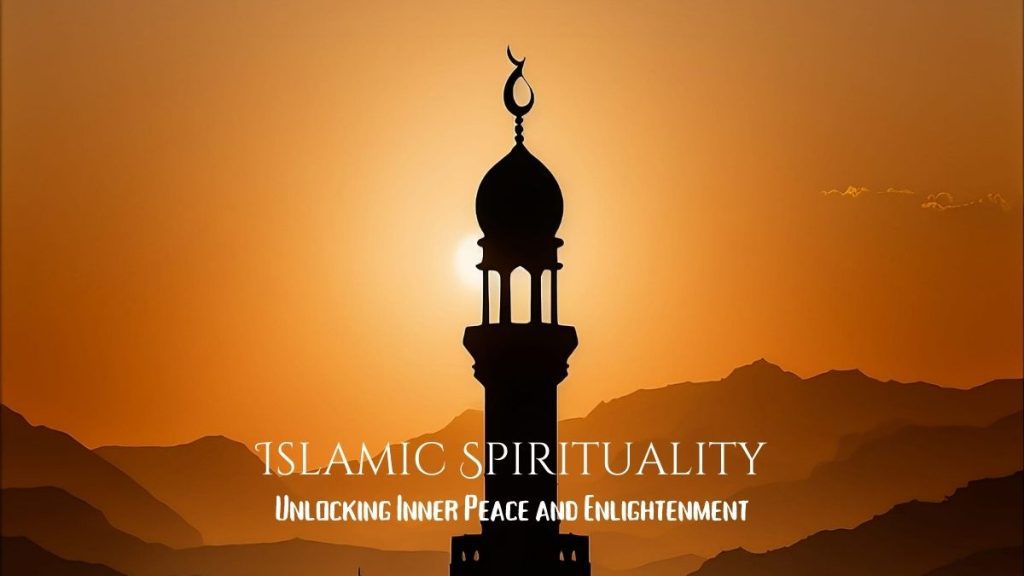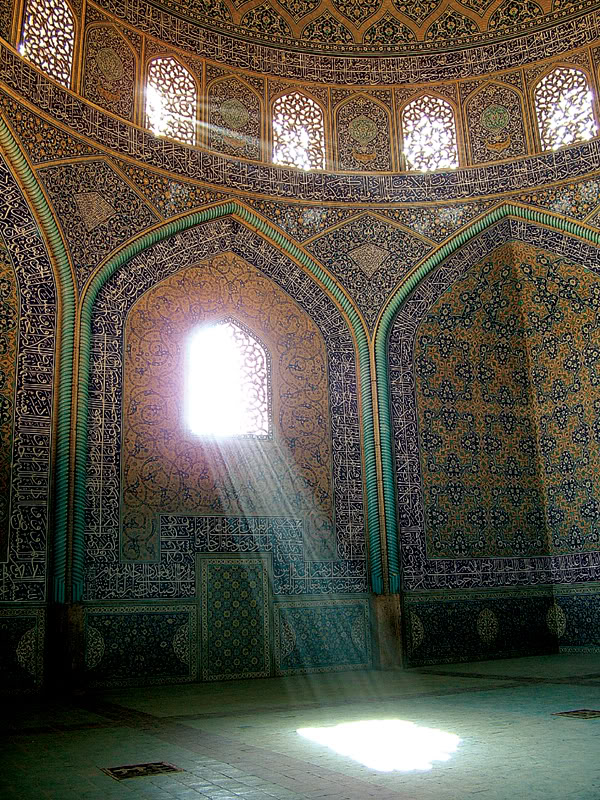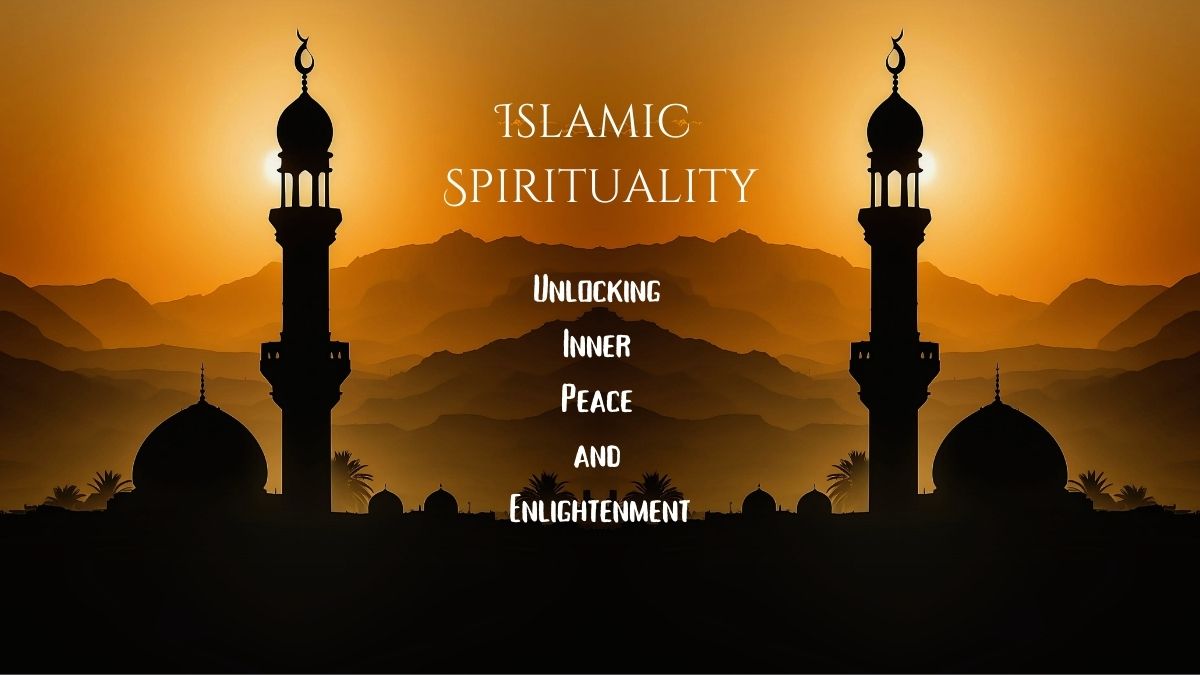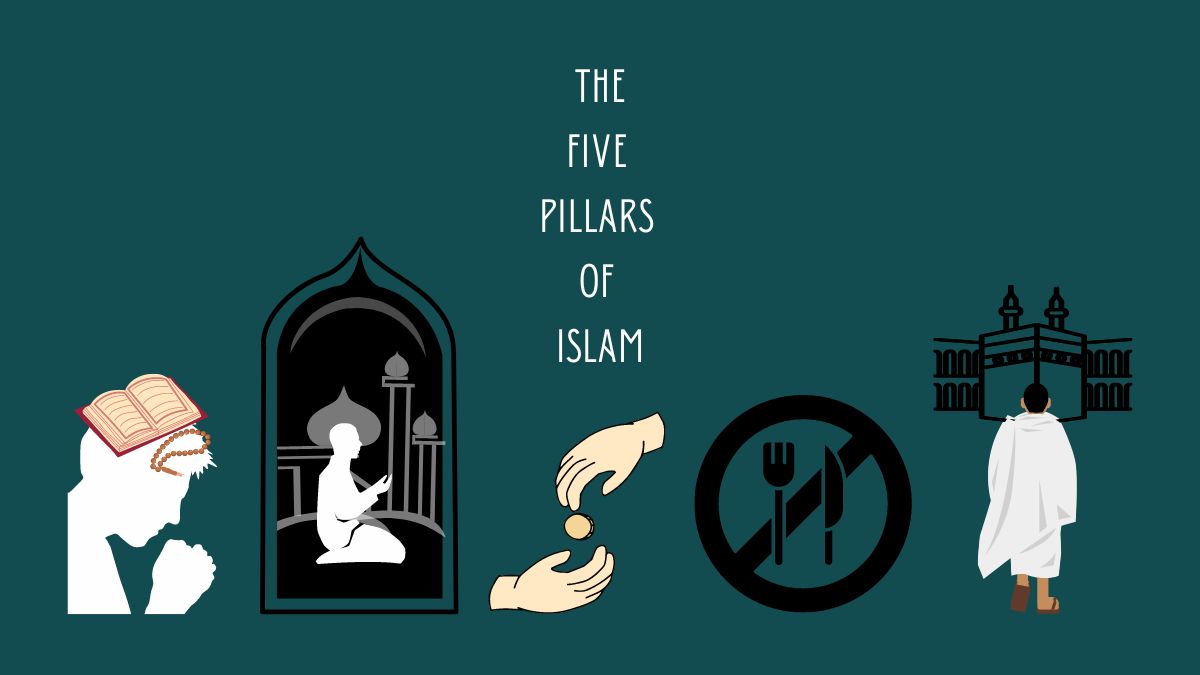Islamic spirituality focuses on a deep connection with Allah through worship, reflection, and ethical living. It emphasizes inner peace and moral integrity.
Islamic spirituality, also known as “Tazkiyah,” plays a central role in a Muslim’s life. It involves purifying the soul and strengthening one’s relationship with Allah. Daily prayers, fasting during Ramadan, and reciting the Quran are key practices. Spiritual reflection and self-discipline help achieve inner peace and moral uprightness.
Acts of charity and kindness are also integral, fostering a sense of community and compassion. By adhering to these principles, Muslims strive to lead a balanced and fulfilling life. This spiritual journey nurtures both individual growth and societal harmony, making it essential in the Islamic faith.
Related Article: What Makes Islam Unique: Insights & Distinctions

Related Article: The Power of Islam: Unleashing its Transformational Potential
You may also read: The Role of Imam in Islam: Guiding Faith and Community
Foundations Of Islamic Spirituality
Islamic spirituality is rich and deeply rooted in the faith’s core beliefs and history. It offers guidance on how to live a meaningful life. This section explores the foundations that shape Islamic spirituality.
Core Beliefs
The core beliefs of Islamic spirituality are based on the Five Pillars of Islam. These pillars serve as the foundation for a Muslim’s faith and actions.
- Shahada (Faith): Declaring the belief in one God and Muhammad as His prophet.
- Salah (Prayer): Performing five daily prayers facing Mecca.
- Zakat (Charity): Giving a portion of one’s wealth to the needy.
- Sawm (Fasting): Fasting during the month of Ramadan.
- Hajj (Pilgrimage): Making a pilgrimage to Mecca at least once if able.
Historical Context
Islamic spirituality has evolved over time, influenced by various historical events and figures. The life of Prophet Muhammad is central to understanding its development.
Prophet Muhammad’s revelations in the 7th century laid the groundwork. His teachings spread rapidly across the Arabian Peninsula and beyond.
Over centuries, scholars and mystics further enriched Islamic spirituality. Key figures include Al-Ghazali and Rumi, whose works continue to inspire Muslims today.
Related Article: The Role of Mosques in Islam: Spiritual Hubs and Community Centers

Credit: www.bloomsbury.com
Related Article: Peace in Islam: Understanding its Amazing Transformational Power
The Role Of The Quran
The Quran holds a central place in Islamic spirituality. It is considered the ultimate guide for Muslims. The Quran offers both practical and spiritual guidance. Muslims turn to the Quran for wisdom and comfort. It shapes their daily lives and spiritual practices.
Guidance For Life
The Quran provides clear guidelines for leading a righteous life. It covers various aspects of life, from personal conduct to social justice. Muslims follow these teachings to live morally and ethically. The Quran emphasizes the importance of honesty, compassion, and patience.
| Aspect | Guidance |
|---|---|
| Personal Conduct | Be honest and kind. |
| Social Justice | Support equality and fairness. |
| Family Life | Respect and care for family. |
Meditative Practices
Muslims use the Quran in various meditative practices. They recite verses to find peace and focus. This recitation is called Tilawah. It helps them connect with God on a deeper level.
Another practice is Tafakkur, which means reflection. Muslims think deeply about the meanings of Quranic verses. This helps them gain insights and understand their purpose in life.
- Tilawah: Reciting Quranic verses.
- Tafakkur: Reflecting on the meanings.
These practices bring tranquility and spiritual growth. They help Muslims stay grounded and focused on their faith.
Significance Of Prayer
Prayer is a cornerstone of Islamic spirituality. It connects believers to the divine. This practice strengthens faith and provides inner peace. Muslims pray five times a day. Each prayer is a moment to seek guidance and reflect.
Daily Rituals
Muslims have five daily prayers. These prayers are Fajr, Dhuhr, Asr, Maghrib, and Isha. Each prayer has its specific time and significance. These rituals create a structured day for believers. They start with Fajr at dawn and end with Isha at night.
| Prayer Name | Time |
|---|---|
| Fajr | Dawn |
| Dhuhr | Midday |
| Asr | Afternoon |
| Maghrib | Sunset |
| Isha | Night |
Performing these prayers requires certain rituals. These include ablution, specific postures, and recitations. These actions purify the body and soul. They prepare the mind to communicate with Allah.
Connection With The Divine
Prayer creates a direct link to Allah. It is a personal conversation with the Creator. During prayer, Muslims recite verses from the Quran. They also make personal supplications, known as Du’a.
- Reciting Quranic verses
- Making Du’a
- Seeking forgiveness
- Expressing gratitude
These actions deepen the spiritual connection. The sense of closeness to Allah brings immense peace. It helps in handling daily challenges and stresses. Through prayer, believers find solace and strength.
Related Article: Unlocking the Power of Ummah Significance

Related Article: How Does Islam Affect Daily Life: Unveiling the Impact
The Sufi Path
The Sufi Path is a journey of the heart, seeking divine love. This path emphasizes inner purity, compassion, and spiritual enlightenment. Sufism, a mystical branch of Islam, offers profound insights into spiritual practices and wisdom.
Mystical Traditions
Sufism embraces various mystical traditions that nurture the soul. These traditions include:
- Dhikr: Repetition of God’s names to achieve spiritual closeness.
- Sama: Listening to music and poetry to elevate the spirit.
- Meditation: Deep contemplation to connect with the divine.
- Whirling Dervishes: A dance to symbolize the soul’s journey to God.
These practices help Sufis experience divine love and unity. They provide a path to spiritual transformation and inner peace.
Spiritual Masters
Spiritual masters or Sufi saints guide seekers on this path. Their wisdom and teachings offer invaluable insights. Some renowned spiritual masters include:
| Master | Teachings |
|---|---|
| Rumi | Love, unity, and the beauty of the divine. |
| Al-Ghazali | Inner purification and the importance of intention. |
| Rabia Basri | Pure love for God without expectations. |
These masters emphasize the importance of love, compassion, and selflessness. Their teachings inspire millions to seek a deeper connection with the divine.
Inner Peace Through Zikr
Islamic spirituality emphasizes the pursuit of inner peace through various practices. One such practice is Zikr, the remembrance of Allah. Zikr involves repeating specific phrases or prayers, calming the mind and soul.
Repetitive Prayers
Repetitive prayers are a core part of Zikr. These prayers can be simple phrases like “SubhanAllah” (Glory be to Allah), “Alhamdulillah” (All praise is due to Allah), and “Allahu Akbar” (Allah is the Greatest). Each phrase helps focus the mind and brings peace.
Here is a simple table showing common Zikr phrases and their meanings:
| Phrase | Meaning |
|---|---|
| SubhanAllah | Glory be to Allah |
| Alhamdulillah | All praise is due to Allah |
| Allahu Akbar | Allah is the Greatest |
Reciting these phrases helps keep the mind engaged. It also fosters a sense of spiritual connection.
Mindfulness Techniques
Zikr also involves mindfulness techniques. These techniques include focusing on breathing and being present in the moment. They help reduce stress and anxiety.
Here are some mindfulness techniques used in Zikr:
- Deep breathing: Inhale deeply, hold, then exhale slowly.
- Visualization: Imagine a peaceful place while reciting Zikr.
- Counting beads: Use a prayer bead to keep track of repetitions.
These techniques enhance the spiritual experience. They help maintain a connection with Allah and bring inner peace.
Engaging in Zikr regularly can transform one’s spiritual life. It brings a sense of calm and fulfillment.
Related Article: The Five Pillars of Islam: A Comprehensive Guide

Credit: traditionalhikma.com
Related Article: Spiritual Benefits of Ramadan: Enhance Your Inner Peace
Achieving Enlightenment
Islamic spirituality offers a profound journey towards enlightenment. This journey involves deep reflection, prayer, and growth. As one progresses, they move closer to a pure connection with Allah. Let’s explore the stages of this spiritual growth and personal reflections on this path.
Stages Of Spiritual Growth
The journey to enlightenment in Islam occurs in distinct stages. These stages help believers grow closer to Allah.
- Awakening: This is the initial stage. Believers start to recognize the importance of faith.
- Purification: At this stage, individuals cleanse their hearts from sins and negative traits.
- Illumination: Here, the heart begins to fill with divine light and knowledge.
- Union: The final stage. Believers feel a deep connection with Allah.
Personal Reflections
Each person’s journey to enlightenment is unique. Personal reflections play a crucial role in this process.
- Daily Prayer: Consistent prayer strengthens the bond with Allah.
- Reading Quran: Regularly reading the Quran provides guidance and wisdom.
- Acts of Kindness: Performing good deeds purifies the soul.
- Seeking Knowledge: Learning about Islam deepens one’s faith.
Believers often reflect on their experiences. These reflections help them understand their progress and areas for improvement.
Related Article: How to Be a Better Muslim: 5 Empowering Habits
Conclusion
Exploring Islamic spirituality offers profound insights into personal growth and inner peace. It encourages mindfulness and compassion in daily life. Embracing these principles helps foster a deeper connection with oneself and the divine. The journey of Islamic spirituality can lead to a more fulfilling and balanced existence.
Related Article: Islam And Modernity: Bridging Tradition and Progress





5 thoughts on “Islamic Spirituality: Unlocking Inner Peace and Enlightenment”